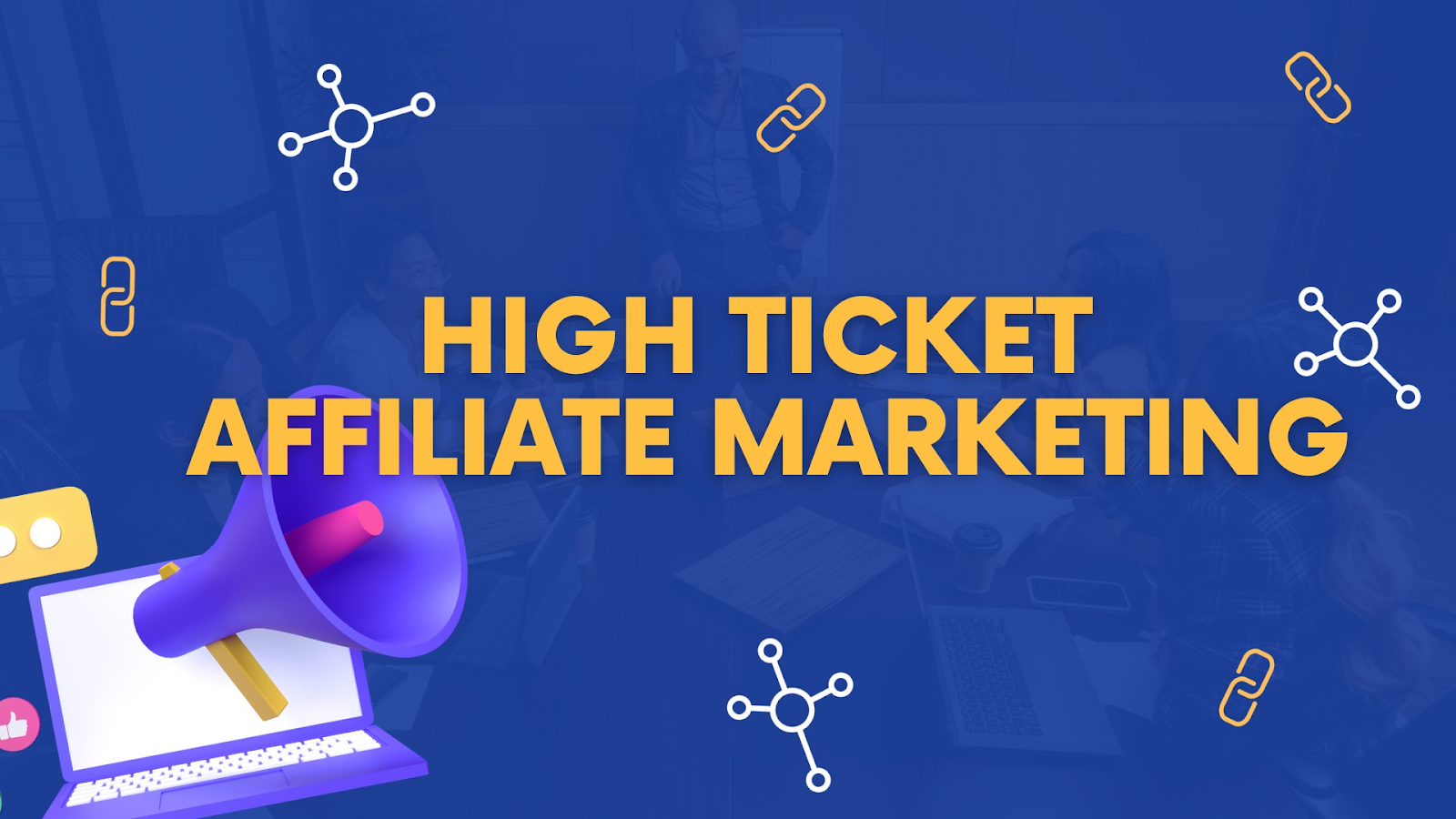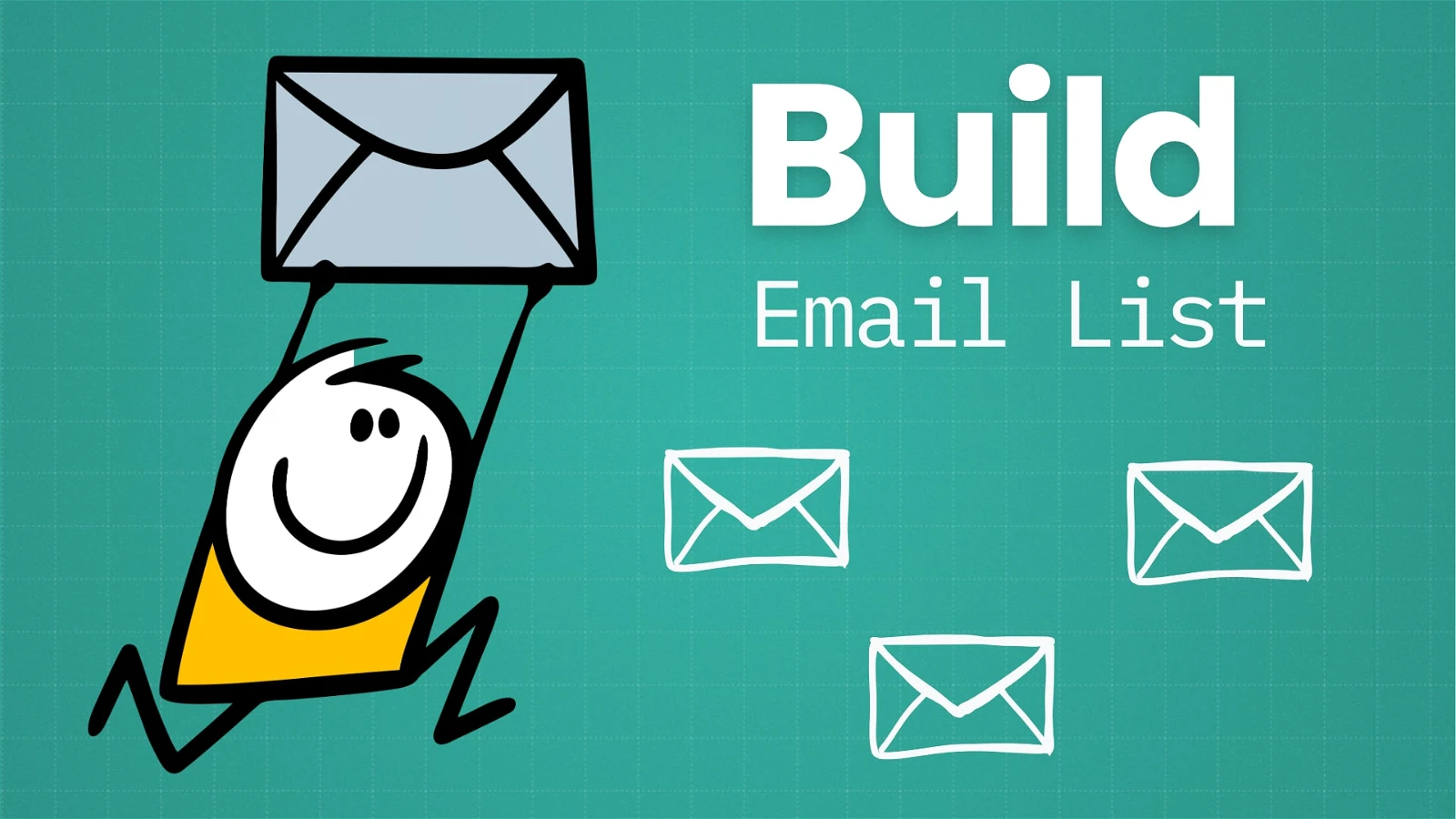
Introduction to Big Ticket Affiliate Marketing
A True Done-For-You Home Business That Allows You To Make $100 – $6000 Per Sale! https://lllpg.com/nbp2mrn6/
Big ticket affiliate marketing refers to the practice of promoting high-value products or services that yield substantial commissions for affiliates. Unlike traditional affiliate marketing, which often centers around lower-priced items, big ticket offers typically have higher price points, which can significantly increase the affiliate’s earning potential. This unique approach to affiliate marketing emphasizes the importance of selecting items that allow affiliates to earn high commissions, often ranging from hundreds to thousands of dollars per sale.
A distinguishing feature of big ticket items is their longer sales cycle. These offers tend to require more in-depth research and consideration by potential buyers before making a purchase. As such, the sales process often involves nurturing leads and building relationships over an extended period, which can be more demanding than promoting lower-priced products. Affiliates must recognize that the timeline to conversion is generally longer, requiring patience and strategic marketing efforts to effectively drive sales.
Furthermore, the characteristics of high-ticket items often include increased value, quality, and brand reputation. Many of these offers are associated with luxury goods, advanced technology, or specialized services. This necessitates a thoughtful approach to niche selection, as the right focus can lead to greater success in big ticket affiliate marketing. Affiliates should consider their audience’s interests and needs when choosing a niche, ensuring that they align with the high-value products they intend to promote. Selecting the right niche not only aids in target audience engagement but also plays a critical role in establishing authority and trust within the market.
By understanding the nuances of big ticket affiliate marketing, individuals can leverage their efforts to unlock substantial financial opportunities and create a sustainable income stream.
Why Marketing is Crucial for Success
Effective marketing is an indispensable component for achieving success in big ticket affiliate offers. Unlike traditional products with lower prices, high-ticket items often require a different approach to entice potential buyers. A well-structured marketing strategy plays a vital role in influencing consumer behavior, enhancing conversion rates, and ultimately driving revenue. By understanding the intricacies of customer psychology and adopting targeted marketing techniques, affiliates can significantly increase their chances of closing lucrative deals.
When promoting high-ticket items, marketers often encounter unique challenges compared to lower-priced products. One major hurdle is buyer hesitation, as customers tend to be more cautious when investing a substantial amount of money. To navigate this challenge, effective marketing strategies must focus on addressing consumer concerns and establishing credibility. This can be achieved through personalized communication, robust content that highlights product benefits, and using testimonials or success stories from previous buyers. Additionally, leveraging social proof can significantly bolster consumer confidence, making them more likely to proceed with a purchase.
Building trust is another critical aspect when marketing big ticket offers. Consumers are more inclined to make significant investments when they feel secure in their decision. Consistent branding, engaging storytelling, and transparent communication help create an emotional connection between the seller and the buyer. Marketers who emphasize these elements are more likely to foster a relationship built on trust, which is essential for high-ticket sales. Additionally, effective email marketing campaigns and targeted advertising can further reinforce this trust by providing ongoing value and information about the products.
Ultimately, marketing serves as the linchpin in navigating the complexities inherent in big ticket affiliate sales. By implementing an effective marketing strategy, affiliates can overcome obstacles, build meaningful connections with potential customers, and ultimately boost their revenue from high-valued products.
Types of Marketing Strategies for High-Ticket Offers
When it comes to selling high-ticket affiliate offers, employing effective marketing strategies is crucial. Various approaches can be adopted, each with its unique mechanisms and benefits. One prominent strategy is content marketing, which involves creating valuable, informative content that engages the target audience. By producing articles, videos, and infographics that demonstrate the value of the high-ticket item, marketers can position themselves as thought leaders, ultimately driving more conversions. The key is to focus on storytelling and addressing the audience’s pain points, which makes the offer more relatable and desirable.
Email marketing is another powerful tool for promoting high-ticket offers. This strategy involves building a list of potential customers and nurturing them through targeted email campaigns. By delivering personalized and relevant content, marketers can establish trust and credibility, essential factors when pitching expensive products. Utilizing segmentation techniques allows marketers to tailor messages based on customer behavior, increasing the likelihood of successful conversions.
Social media advertising presents an additional avenue for reaching potential buyers of high-ticket items. Platforms like Facebook and Instagram allow for targeted ads that can be directed to specific demographics. Paid advertisements can be creatively crafted to highlight the luxurious nature or exclusive benefits of the product, resonating with affluent audiences. Moreover, leveraging user-generated content through testimonials can enhance credibility and compel prospective buyers to take action.
Webinars serve as an interactive format to showcase high-ticket offers, enabling marketers to engage directly with potential customers. Through live presentations, marketers can provide in-depth information about the product, answer questions, and address objections in real time. This format fosters a sense of community and allows for building personal relationships, which are crucial when selling high-value items.
Lastly, search engine optimization (SEO) plays an integral role in marketing high-ticket offers. By optimizing website content to rank higher in search engine results, marketers can attract organic traffic that is already interested in making significant purchases. Focusing on keywords and phrases that potential buyers may use during their research can significantly enhance visibility, making it vital for promoting high-ticket affiliate offers efficiently.
Building a High-Value Brand to Support Big Ticket Sales
In the realm of high-ticket affiliate marketing, brand building emerges as a crucial strategy for effectively driving sales and establishing credibility. A high-value brand not only distinguishes offerings from competitors but also fosters trust among consumers who invest in premium products or services. One of the primary strategies for effective branding is maintaining consistency in messaging across all platforms. This ensures that potential customers recognize and relate to the brand, thereby enhancing their perception of its reliability and authority.
Creating quality content plays a vital role in building a robust brand presence. Content that provides substantial value—such as informative articles, engaging videos, or insightful webinars—positions a marketer as an authority in their niche. High-quality content nurtures the audience’s trust, making them more inclined to consider high-ticket offers. Additionally, equipping consumers with the knowledge they need aids in their decision-making processes, reducing perceived risks associated with significant financial investments.
Engagement with the target audience is another key aspect of brand building. Actively interacting with followers on social media, responding to queries, and encouraging discussions reinforces the brand’s commitment to customer satisfaction. This rapport not only enhances brand perception but also influences consumer psychology; buyers are more likely to choose brands that they feel connected to or invested in. Understanding the psychological factors at play, such as the desire for exclusivity, value perception, and social proof, can guide strategies to shape marketing efforts effectively.
Ultimately, a well-established brand can serve as a powerful vehicle in promoting high-ticket affiliate offers. By fostering trust, authority, and engagement, the brand significantly influences consumer decision-making, leading to increased sales. Prioritizing these branding strategies will lay a solid foundation for success in the competitive landscape of high-ticket affiliate marketing.
The Role of Funnels in Affiliate Marketing
Sales funnels are a critical component of high-ticket affiliate marketing, serving as structured pathways that guide prospective customers from the initial stage of awareness through to the final purchase. A sales funnel consists of several key stages: awareness, interest, decision, and action. Each stage requires targeted strategies to nurture and move potential buyers progressively closer to making a purchase.
At the awareness stage, marketers need to introduce their big ticket affiliate offers to a broad audience. This can be achieved through various channels, such as social media, blog content, or email campaigns, aimed at capturing the attention of potential customers. Once awareness is established, the next stage is to generate interest. Here, marketers can utilize compelling content, such as informative webinars, insightful blog posts, or engaging videos, to provide value and spark curiosity about the product being offered.
Following interest, the decision stage is where potential customers evaluate their options. This is often where marketers employ lead magnets, such as free trials or downloadable guides, to incentivize prospects to share their contact information. These strategies allow marketers to nurture relationships through personalized follow-ups or email sequences. The ultimate goal at this point is to address any objections and build trust with potential clients, encouraging them to move toward the action stage of the funnel.
In the action stage, upselling strategies can be employed effectively. For instance, after a prospect agrees to make a purchase, marketers can present related products or premium packages that enhance the original buy. By strategically designing these funnels with the right content and offers, big ticket affiliate marketers can effectively guide customers through the buying process, maximizing conversion rates and driving higher returns on their marketing investments.
Leveraging Social Proof and Testimonials
In the competitive realm of big ticket affiliate offers, the concept of social proof stands out as a pivotal marketing strategy. Social proof essentially involves using the validation from others to inspire confidence in potential buyers. By displaying testimonials, case studies, and user-generated content, marketers can create a sense of trust and legitimacy around their offers, which is vital for high-ticket items that require a significant investment from consumers.
Testimonials serve as powerful endorsements from satisfied customers. They can illustrate positive experiences and highlight the transformative results achieved through the product or service. Case studies, on the other hand, provide detailed accounts of specific individuals or situations where the product delivered exceptional value. These narratives not only capture the effectiveness of the offer but also allow potential buyers to envision similar results in their own lives.
User-generated content further amplifies the conversation around trust. When existing customers share their experiences, either through reviews on social media or contributions on websites, they enhance the authenticity of the marketing message. This content can take various forms, including videos, blog posts, or images showcasing the product in real-life scenarios. As users increasingly rely on peer recommendations, featuring such content prominently can significantly increase conversion rates.
To effectively gather and display social proof, marketers should implement several strategies. Encouraging satisfied customers to leave reviews or share their stories can create a wealth of material to pull from. Additionally, showcasing positive feedback on landing pages or in email campaigns can serve to reassure hesitant buyers. Ultimately, the informed decision-making process that social proof fosters will be crucial in elevating conversions for big ticket affiliate offers.
Using Data Analytics for Continuous Improvement
In the ever-evolving landscape of marketing, data analytics emerges as a crucial tool for enhancing strategies, especially when it comes to big ticket affiliate offers. By leveraging data, marketers can gain valuable insights into their campaigns, allowing them to refine their approaches for maximum effectiveness. Key performance indicators (KPIs) serve as the backbone of this analytical evaluation, guiding marketers in understanding the efficacy of their promotional efforts. Important KPIs that should be monitored include traffic sources, conversion rates, and customer feedback.
Traffic sources reveal where potential customers are coming from, allowing marketers to evaluate which platforms are the most effective for their affiliate products. By analyzing this data, marketers can allocate resources more efficiently to the most productive traffic channels, effectively increasing the visibility of high-ticket offers. Moreover, conversion rates serve as an essential metric in determining how many visitors actually make a purchase. A thorough analysis of this KPI can indicate whether landing pages or sales processes require optimization, thereby improving overall sales performance.
Customer feedback is another critical facet, as it provides insight into customer preferences and pain points. Analyzing reviews and comments helps marketers to understand the strengths and weaknesses of their affiliate products and marketing tactics. This feedback loop allows for timely adjustments to campaigns, ensuring that messaging resonates more effectively with the target audience. By continuously monitoring these metrics and adjusting strategies accordingly, marketers can harness data analytics not just as a retrospective tool, but as a proactive strategy for continuous improvement. As the data paints a clearer picture of campaign performance, marketers are better positioned to make informed decisions that facilitate the success of big ticket affiliate offers.
Strategies for Scaling Your Big Ticket Affiliate Business
Scaling a big ticket affiliate marketing business involves implementing various strategies that can significantly enhance overall performance and revenue. One effective approach is diversifying your product offerings. By introducing additional high-value items to your portfolio, you can appeal to a broader audience and meet varying consumer needs. This not only boosts sales potential but also minimizes risks associated with market fluctuations. Consider evaluating trends and customer preferences to inform your product selection process.
Another pivotal strategy is exploring new niches. By identifying emerging markets or underserved segments, you can position yourself ahead of competitors and leverage unique affiliate opportunities. Conducting thorough market research can reveal niches that align with your existing brands while still offering potential for substantial returns. Moreover, diversifying into different niches allows you to mitigate risks associated with relying solely on specific products or markets.
Paid advertising is a vital avenue to increase traffic to your affiliate offers. Platforms such as Google Ads and social media channels provide targeted options that can effectively connect you with your desired audience. By investing in paid marketing strategies, you can ensure a steady influx of potential customers while carefully monitoring the return on investment. However, it is essential to continually analyze advertising performance metrics to optimize campaigns for the best results.
Optimization of existing marketing efforts is equally important. Review your current campaigns to identify areas for improvement. This could involve refining your messaging, improving website user experience, or enhancing email marketing strategies. Additionally, automating certain processes can greatly assist in managing growth without compromising quality. Utilizing tools for email automation, social media scheduling, and customer relationship management can free up valuable time, allowing you to focus on strategic initiatives that drive growth.
Conclusion: Embracing the Power of Strategic Marketing
In summary, the journey through big ticket affiliate offers unveils the critical role that strategic marketing plays in achieving success. Throughout this discussion, we have illuminated several key strategies that are instrumental for marketers aiming to elevate their affiliate endeavors. From audience segmentation and tailored messaging to utilizing various marketing channels, each tactic contributes to the potential for greater conversion rates and substantial earnings.
The importance of understanding the target audience cannot be understated. Marketers who invest time in researching and identifying their ideal customers are better positioned to create tailored campaigns that resonate deeply. This connection not only enhances engagement but also fosters trust, which is vital when promoting high-value products or services.
Moreover, utilizing diversified marketing channels, including content marketing, email campaigns, and social media outreach, broadens the reach of affiliate offers. Each platform presents unique opportunities to engage potential customers, offering distinct advantages that can be leveraged depending on the nature of the product and the preferences of the audience.
As we embrace the digital landscape’s evolution, the need for continuous learning and adaptation in marketing strategies becomes paramount. Marketers should remain attuned to shifts in consumer behavior and technological advancements. By doing so, they can refine their approach toward big ticket affiliate offers, tailoring their strategies to maximize results.
Ultimately, the pursuit of financial rewards through affiliate marketing necessitates a commitment to strategic planning and execution. The strategies discussed here serve as guiding principles for aspiring affiliate marketers. By employing these techniques, one can unlock the full potential of affiliate marketing, paving the way for impressive commissions and long-term success in the competitive world of big ticket offers.







